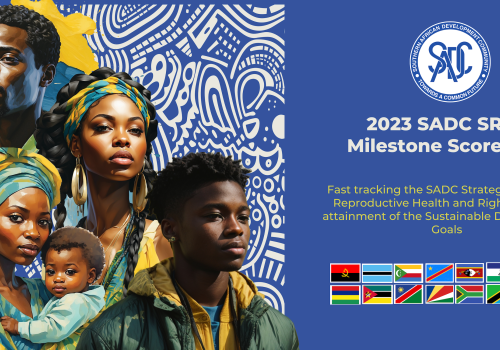SADC Launches 2nd Milestone Scorecard on Sexual and Reproductive Health and Rights
The Southern African Development Community (SADC) unveiled its 2nd Milestone Scorecard on Sexual and Reproductive Health and Rights (SRHR) during a joint meeting of Ministers of Health and Ministers responsible for HIV & AIDS. The launch took place on the sidelines of the meeting in Luanda, Republic of Angola.
The SADC SRHR scorecard serves as a strategic tool to monitor political-level progress toward achieving the outcomes outlined in the SRHR Strategy for the SADC Region 2019–2030.
Grounded in the goals and targets of the Sustainable Development Goals (SDGs), the scorecard facilitates cross-regional comparisons, inspires best practices, and encourages the sharing of experiences to enhance SRHR outcomes for individuals, families, communities, and the entire SADC region.
H.E Dr. Silvia Lutucuta, Minister of Health of the Republic of Angola and Chairperson of the SADC Ministerial Committee on Health, commended the Kingdom of Eswatini, Republic of Namibia, and Republic of South Africa—the SADC Troika Member States at the time—for initiating the development of the SRHR Strategy and Scorecard.
She expressed gratitude to International Cooperating Partners for their support in creating the scorecard.
The launch provided an opportunity to showcase progress made, identify barriers and challenges, and prioritize strategies for advancing SRHR in the region.
Dr. Lutucuta emphasized the need for increased action to protect, sustain, and advance SRHR gains.
Mrs. Angele Makombo N’tumba, SADC Deputy Executive Secretary for Regional Integration, noted that the strategy and scorecard align with the SADC Vision 2030, aiming for a region where everyone can have a healthy sexual and reproductive life.
She commended Member States for their commitment to addressing maternal and neonatal mortality and promoting a multisectoral approach to combat gender-based violence.
Ms. Lydia Zigomo, Regional Director, UNFPA East and Southern Africa, representing UN Agencies supporting the Together4SRHR programme, highlighted key action areas.
These include incorporating SRHR into national essential service packages, addressing legal and policy barriers, building health system resilience, prioritizing community leadership in SRHR programs, and adopting a digital mindset to enhance the quality of care.
The SRHR Strategy for the SADC Region 2019–2030, endorsed in 2018, serves as a policy and programming framework to accelerate the attainment of sexual and reproductive health and rights for all people in the SADC region.
The launch of the 2nd Milestone Scorecard marks a crucial step in advancing regional efforts toward comprehensive SRHR goals.



